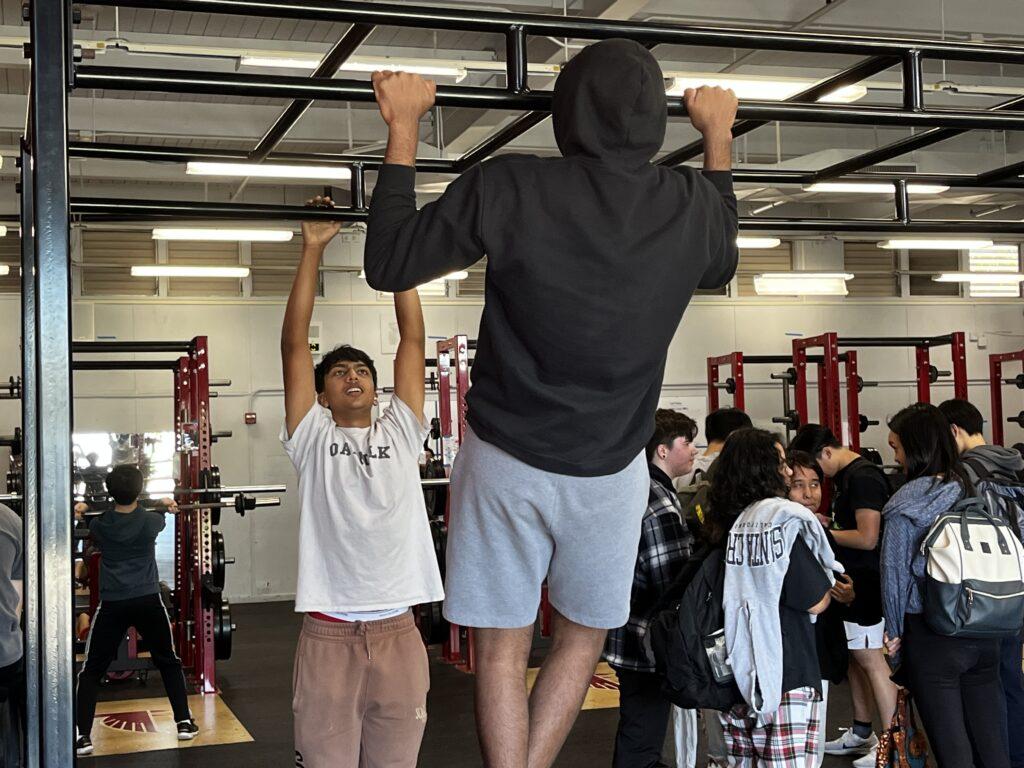The district’s recent review and new interpretation of California’s Education Code standards for physical education at the school has ended the policy of exempting freshmen from P.E. classes while they are participating in school athletics. The policy change is the result of fears that freshman athletes are not meeting California physical education standards. The policy starts with the Class of 2028.
This change was last proposed in 2013 but met with so much controversy that it was not successfully implemented.
This change is largely due to the district’s interpretation of physical education and physical activity being separate, meaning participation in a school sport no longer satisfies California’s physical education standards.
“Currently, an example of what we do is when a student joins the Cheer team, they sign up for the P.E. Cheer course,” principal Greg Louie said. “Those courses are not taught by a credentialed P.E. teacher, something that we’re fixing (with this policy change).”
Current freshman and sophomore athletes are excused from P.E. during their season and return to the class after the season ends. The district is concerned that allowing students to stop taking P.E. during their seasons has resulted in not meeting the expectations embedded in the state’s Educational Code.
“If you read the language of the Ed Code, there’s an interpretation of physical education versus physical activity,” Louie said. “Physical activity is typically a sport, while physical education is where these PE courses teach the three standards and eight domains.”
The three standards include “knowledge of and competency in motor skills,” “level of physical fitness for health and performance” and “knowledge of psychological and sociological concepts, principles and strategies.” These standards are part of how students are evaluated in beginning P.E. courses, and the district’s interpretation of these Ed Code standards is that “physical activity” like athletics might not effectively teach all three standards, according to Louie.
The eight domains include an understanding of how physical activity improves dynamic health, the mechanics of body movement, aquatics, individual and dual sports, gymnastics and tumbling, team sports, dance and combatives. While some skills in these sports are taught through sports participation, the Education Code specifies students should be competent in all eight domains, which would be difficult to achieve as part of just one sports team, Louie said.
This new requirement is also going to impact those in the Independent Study of Physical Education (ISPE) program, where a student participates in an outside of school sport to meet the minimum hours to exempt them from PE. However, ISPE will no longer qualify as a replacement for PE, and even athletes competing at the national level in a sport such as figure skating or fencing will be required to take the class.
All sports will be impacted by this change in interpretation; however, programs like marching band remain unaffected due to their existing policies — students who participate in marching band and winter percussion are already mandated to take a marching band P.E. class that the district says meets the Educational Code Standards. Many students believe that this change in policy will negatively impact the already weak athletics programs at the school.
For freshman quarterback Anson Hulme, the idea of making P.E. mandatory for freshman athletes will have a negative impact.
“It’s nice to have an extra period to get homework done, or eat before practice,” Hulme said. “Especially on Red Days, it’s nice to get out before 3:45 and be able to take a break.”
Hulme played three sports this year — football, basketball and volleyball — but said mandatory P.E. wouldn’t have changed the amount of sports he participated in, even if he would’ve been much more tired during the day.
“I think that this mandatory P.E. would mess up a lot of sports, especially football,” he said. “A lot of freshmen try out football in order to skip P.E. and end up continuing doing it if they enjoy it. We probably won’t get as many people trying it out next year.”
These anticipated impacts are serious to the administration and all faculty involved in school sports, as declining enrollment and already shrinking participation in school sports have threatened many teams.
“One idea that we’ve come up with for our freshman athletes is organizing some type of study hall,” principal Greg Louie said. The study hall would help make up for the free period to study in-season athletes will no longer have.
Although this proposal hasn’t been finalized, and the resources to support this program aren’t finalized, it’s one of many options the administration has considered to support incoming freshman athletes.
“Right after or before practice, giving athletes a place to study and providing food to add value to being a student athlete, adding structure to help them go through their six or seven period weeks,” Louie said. “We also want all student athletes to have assistance to focus on their schoolwork, get their homework done and be fed.”


























